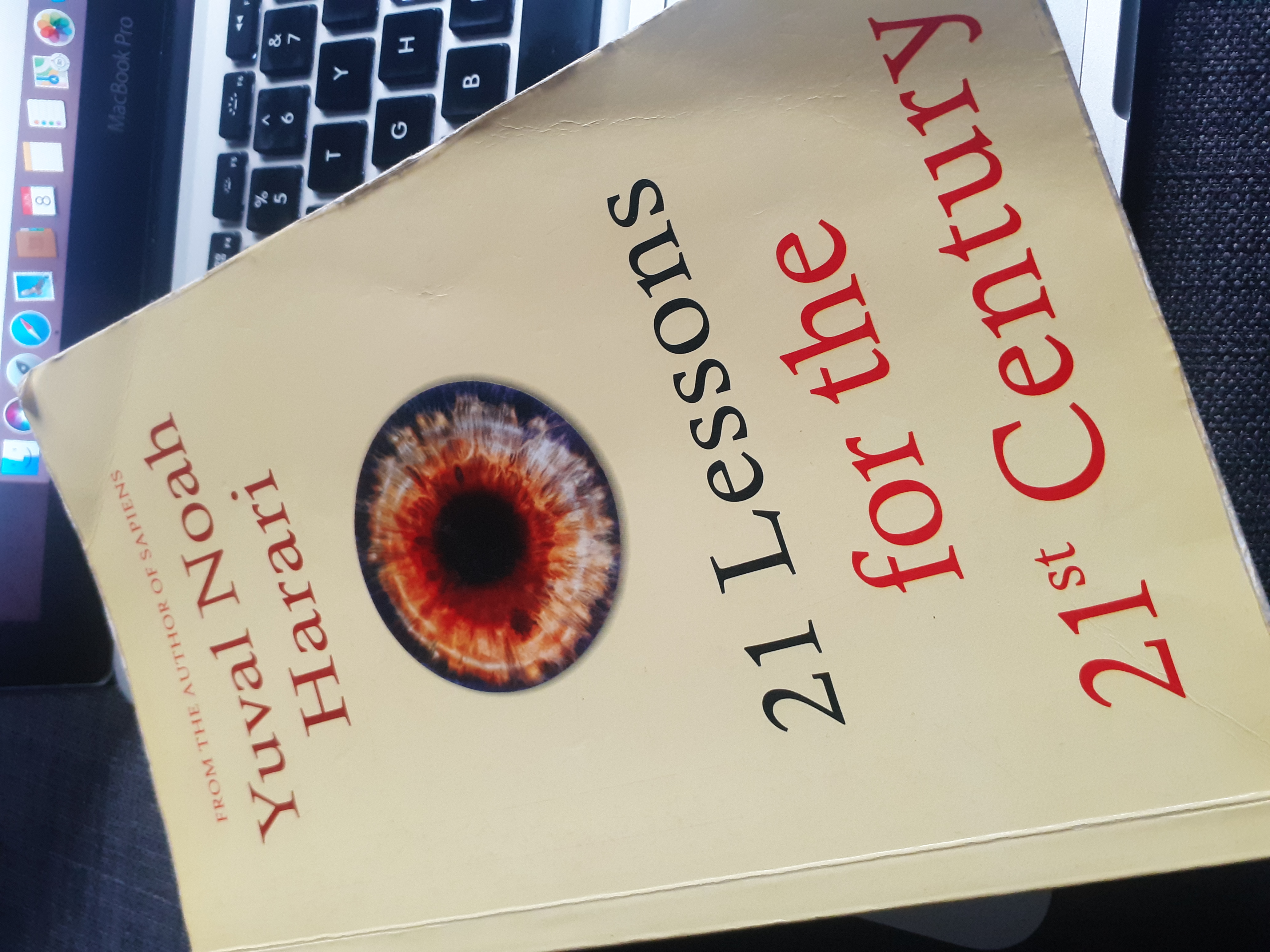
Okay, so this book has been discussed worldwide ever since its release in 2018. The third book to the Sapien series written by Yuval Noah Harari, I took a long time to pick this up, because ‘Homo Deus’ was a big turn-off for me and I just needed a break. Little did I know the historian would come up with such a sensibly written text after the second one in the series, which I guess could be even skipped. Every reader in his/her lifetime has one book that alters the trajectory of his/her thinking and adds new dimensions to it. For me that book was ‘Sapiens’ and that’s why I had to read the complete series. I am glad I did.
This is one of the best-structured books I have read so far in the genre. And needless to say, the author covers a broad spectrum of human history, jobs markets, the workforce, AI, big data, ideologies, civilizations, religions, immigration issues, terrorism, the idea of God, wars, fiction and truth, education, meditation, and much more. Each of these topics is covered in good length, and depth as well. Also, the author has evolved in his writing across all three books. Instead of the usual bombardment of facts, and his derivations, I could see a philosophical approach in the narration. That way, I could easily connect to the idea and also his perception. He has also accepted some of the previous flaws in his writing in a subtle way in the book and answered questions that he faced during the public and media interactions after writing the first two books. If ‘Sapiens’ was all about the past, and ‘Homo Deus' was about the future, then ‘21 Lessons for the 21st Century’ is all about the present, the current happenings.
The book builds gradually, and what worked for me was the consistent positive approach in each chapter. Nothing utopian but nothing dystopian as well. Harari calmly ends the book with a personal account of his venture with Vipassana meditation and integrates it into how all of us can only be good spectators to the entire system of operation set up across the planet by a dominant race. He didn’t falter in talking about some aspects of his personal life, be it about Jews, or the rights of the queer community, and the stand of the world for all of this against his stand, which according to me is quite rational, and clear. He is bold in pointing out the blemishes and imperfections in different institutions and naming them out loud without beating around the bush.
Some of the best chapters in the book are on the idea of ‘Nationalism’ where the author takes on the subject of finding one common answer to the nuclear, ecological, and technological challenges; next about ‘Secularism’ where he implies and stresses the need of a new ideology as the already existing ones - communism, capitalism, and liberalism is flawed and not at par with the world evolution. Of course, you’ll find a tremendous amount of content about artificial intelligence, explorations, and business patterns across the book, but the fifth and final part of the book grabbed my attention and left me with some thoughts. Harari talks about resilience in terms of education, meaning, and meditation.
“So the best advice I could give a fifteen-year-old stuck in an outdated school somewhere in Mexico, India, or Alabama is: don’t rely on the adults too much. Most of them mean well, but they just don’t understand the world. In the past, it was a relatively safe bet to follow the adults, because they knew the world quite well, and the world changed slowly. Due to the growing pace of change, you can never be certain whether what the adults are telling you is timeless wisdom or outdated bias.”
“Indeed, billions of people throughout history have believed that for their lives to have meaning, they don’t even need to be absorbed into a nation or a great ideological movement. It is enough if they just ‘leave something behind’, thereby ensuring that their personal story continues beyond death…They don’t need an elaborate dogma - they just need the reassuring feeling that their story continues beyond the horizon of death…This theory of life as never-ending epic is extremely attractive and common, but it sufferers from two main problems. First, by lengthening my personal story I don’t really make it more meaningful. I just make it longer…The second problem with this theory is the paucity of the supporting evidence. What proof have I got that in the past life I was a medieval peasant, a Neanderthal hunter, a Tyrannosaurus rex, or an amoeba.”
“Over the centuries numerous theories and stories have been ascribed to the Buddha, often without supporting evidence. But you need not believe any of them in order to meditate. The teacher from whom I have learned Vipassana, Goenka, was a very practical kind of guide. He repeatedly instructed students that when they observe the mind they must put aside all second-hand descriptions, religious dogmas and philosophical conjectures, and focus on their own experiences and on whatever reality they actually encounter. Everyday numerous students would come to the room to seek guidance and ask questions. At the entrance to the room a sign said: ‘Please avoid theoretical and philosophical discussions, and focus your questions on matters related to your actual practice.’”
If you are interested in the broader history, world’s geopolitics, economy and the science behind it, the future of the world and the human race, the relevance and the irrelevance of it all, then this is one book that you must undoubtedly read, and absorb. I do not know if it would be right to say but this book can certainly build a great foundation for any novice like me. You can then choose to agree or disagree and study further as per your interest and inclination.
Written by Nazneen Siraj Kachwala
Leave a comment